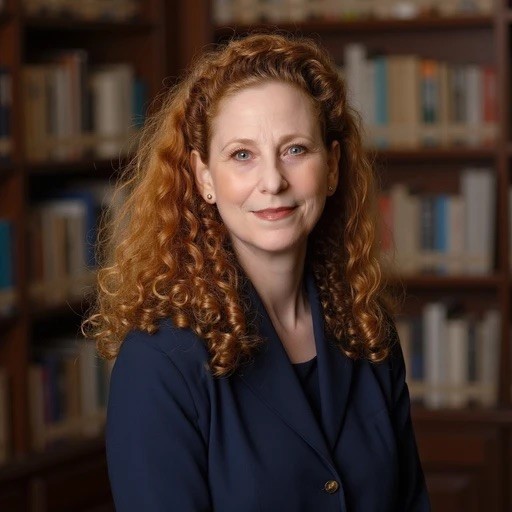Faculty Spotlight: Dr. Natalie Nevins
Celebrating Native American Heritage Month

Associate Dean of Graduate Medical Education and Program Development, College of Osteopathic Medicine, who is also an advocate for health in Native American Communities.
Dr. Natalie Nevins
Her current role at Touro University California in the Graduate Medical Education Department aligns with her vision to foster a learning environment where medical knowledge, patient care, and education are interconnected. Being an educator for her patients emphasizes a holistic role and is a core part of her responsibility as a physician.
Why is it important to celebrate Native American Heritage Month?
Celebrating Native American Heritage Month provides a meaningful platform to honor the vibrant cultures, traditions, music, crafts, and enduring achievements of Native American communities. It is a chance to recognize Native Americans as the original inhabitants of the United States, fostering understanding and healing between communities.
This celebration calls us to challenge and undo the harmful misconceptions and stereotypes that have long misrepresented Indigenous peoples. This helps us build bridges of understanding and unity. Much of their history has been recorded from the perspective of the dominant culture, making it essential to educate non-Native communities about the true and profound history of our Indigenous people. By doing so, we pave the way for respect, inclusion, and unity.
Why is it important to address health issues in Native American Communities?
The Native American community faces severe health inequities rooted in a history of colonization and forced relocation to land with limited resources. These challenges have resulted in disproportionately high rates of chronic physical conditions and mental health issues compared to non-Native populations. Native Americans experience higher mortality rates, dying 12 to 13 years earlier than White Americans, and are 2.3 times more likely to die from diabetes. Additionally, Native Americans have the highest suicide rate among all racial and ethnic groups.
Barriers to healthcare—such as disability, low income, rural living, lack of transportation, and insufficient culturally sensitive healthcare services—exacerbate these disparities. Addressing these issues requires a concerted effort, with education being a key factor in creating culturally appropriate and effective healthcare services for Native American communities. By prioritizing these initiatives, we can work toward equitable healthcare outcomes and honor the resilience of Indigenous peoples.
Dr. Nevins shares insights learned from a recent Native American Health Conference.
Improving healthcare access for Native Americans, particularly in rural areas, requires collaboration and true partnerships with Native American Tribes. It is crucial to approach these efforts with cultural humility, avoiding assumptions and embracing a deep respect for Indigenous cultures and traditions.
A significant step forward is increasing the number of Indigenous physicians, which starts by establishing a robust educational pathway from elementary school through university. This initiative will inspire and support Native youth to pursue careers in healthcare, fostering representation within the medical field.
Additionally, educating non-Native healthcare providers to be culturally sensitive and humble is vital. By understanding and respecting the unique needs and experiences of Native American communities, we can pave the way for equitable and compassionate healthcare. Together, these efforts can transform healthcare access and outcomes for Indigenous peoples.
Dr. Nevin’s history and background.
Dr. Nevin’s medical education was intentional. She pursued her passion for medical education from the beginning by completing both a Master’s in Health Professions Education and Doctor of Osteopathic Medicine simultaneously to support her clinical expertise with educational skills development. Her fellowships in teaching Osteopathic Medicine and research further reinforces her goal to significantly impact patients and students. By empowering patients through education, she is contributing to a wider culture of informed healthcare decisions.
A quote shared by Dr. Nevins.
Dr. Nevins shared a quote from Native Hope, which emphasizes the importance of Native American Heritage Month as a moment for reflection and recognition:
"It serves as a powerful reminder for non-Natives of the important contributions and significance of native people in the history and the present-day reality of North America. The Native American narrative has long been controlled by a history through the eyes of the dominant Western culture. To change this narrative, we must understand there is a narrative to be changed and a heritage to celebrate. Native American Heritage month is one step toward an ever-present recognition and celebration of the Indigenous peoples of North America."
This quote underscores the need for both acknowledging the historical narrative often shaped by dominant Western perspectives and actively shifting toward a more inclusive, respectful celebration of Native American culture and contributions.
